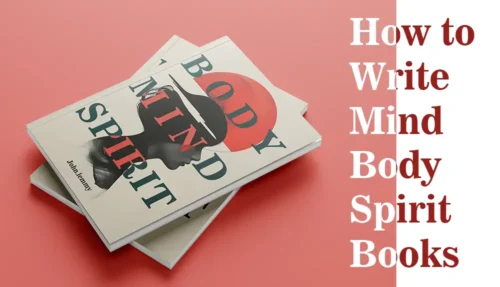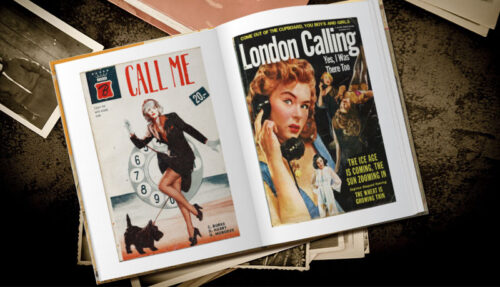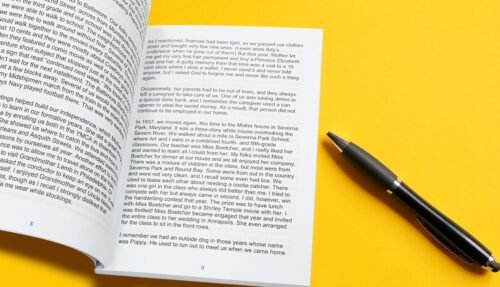We offer advice and encouragement to help you get to the end of your second book, and then the next and the next…

Photo by Andrea Piacquadio via Pexels.com
Have you printed and self-published your first book? Was it a success and are sales still going well? Are the positive reviews rolling in? Is your email list building well? If the answer is yes — congratulations! That’s a fantastic achievement and you should be very proud of yourself. And after that first success, brimming with excitement and keen to build your career as an independent author, you opened up a new file in your favorite word processor and sat down to begin your second book, when…
… you realized with a doom-laden sinking feeling that this was going to be so much harder than writing the first one.
At QinPrinting, we work with self-published writers and independent authors every day, helping them to print the most beautiful editions of their books. So, we understand authors and we know all about your frustrations and the challenges you face in building a writing career. We admire you and we’re proud of every writer we’ve worked with over the last 25 years that we’ve been in the industry. And one thing we know after printing so many authors’ first books — whether adult novels, children’s books, cookbooks, memoirs, coffee table books, art books, or anything else — is the difficulty you face with writing the second book.
We promise you, you’re not alone. “The difficult second book” is a well-known — even notorious — phrase in the world of writing and publishing. Everybody goes through it. So, if you’re writing the difficult second book, whether or not you printed your first one with us, we hope that the following support and advice will get you through.
It isn’t easy. But writing a book at all isn’t easy. It wasn’t easy to write the first one. And while so many things about writing the second book are very similar to writing the first — for example, if you wrote a novel, the fundamentals of story structure, character development, world building, and so on — there are qualitative differences in the experience.
It is just so much harder.
But why?
Reasons it's harder to write the second book
Why are you finding it so much more difficult to write this book? After all, the basic idea is good, isn’t it? You may even have been working on it “in the back of your mind” before you embarked on writing the first book and you’ve already got a nearly completed first draft. And since you’ve already written, printed, and published a book, you now have the experience of planning, writing, and completing one under your belt. Surely, with the benefit of all the lessons you’ve learned, the skills you’ve developed, and the knowledge you’ve gained in writing the first book, the second should be easier to write?
But it isn’t. And a quick Google search will inform you that finding the second book harder than the first is a common experience. That should be comforting. But with the deadline for the second book creeping closer day by day, the cover design and artwork already underway, and it still languishing unfinished, despite grappling with it daily, it’s cold comfort.
From our knowledge of several authors that we’ve worked with and continue to work with, we have a pretty good idea of the psychological and emotional mechanisms that are often in play when you struggle with your next book. But let’s be clear. If you stick with it through thick and thin, you will finish this book. Because you’ve done it once, we know you can do it again.
The stuff and nonsense about writer's block
Philip Pullman — the award-winning author of His Dark Materials and The Book of Dust — has made a point publicly of denying the existence of “writer’s block”. He says there’s no such thing; that it’s simply an excuse for shirking the work on those days when writing is challenging, hard and the results pitifully poor. He advocates the application of a grim discipline and an unforgiving rigidity in maintaining your writing schedule. We believe him. So, you don’t have writer’s block.
But we think we can tell you, honestly, what the problem is.
Deep breath. Here goes: you’re afraid. The problem is fear. And it’s not just a nagging anxiety. It’s something more akin to a profound and mortal dread. It’s almost paralyzing. That’s why you’re struggling with this second book. You are terrified of failure. Terrified that it’s going to be crap.
But you must not succumb to this fear. As the historical novelist, Michael Jecks, has pointed out several times, facing raw fear is just part of a writer’s daily life. Writing is always frightening. There is always the threat of failure. But with the second book, the sense of it is inordinately strong.
Now why should that be?
The burden of expectations
With the second book, the bar of expectation has been raised. If your first book was a failure, you must do better. If the first one was a roaring success, you must at least match, if not exceed, that success. The first time round, you had never published a book before. No one had any idea what to expect, and it was perfectly possible that the book would have been ill received. It could have been complete garbage. And because it was the first, you had permission to fail.
Ah, what a double-edged sword this business is!
It wasn’t garbage! It isn’t. Even if you can’t claim to have sold huge numbers of books, it may continue to sell steadily, receive high praise, and garner a handful of splendid reviews. Seems people like it. More than like it: they’ve thoroughly enjoyed it and eagerly await the next installment.
So, we think that’s the core and the heart of the difficulty. There’s now a certain expectation. And it’s an expectation that you want to live up to. Actually, you may feel that you need to do better than that. The difficult second book has to outshine the previous one in every sense. You now know that you could write the first one. You still don’t know if you’re writing a better one.
Of course, until you finish writing the difficult second book and it’s been published and your readers have tried it, you still won’t know.
It's not the book — it's YOU!
Working these ideas through should lead you to the realization that there’s nothing about your new book which is technically more complex than the previous one. The principles of the structure have not changed. The rules of grammar and syntax are the same as ever they were. From a purely rational point of view, this book must be no more difficult to write than the first. In fact, it really should be easier!
The book isn’t the problem. Your fear and anxiety are the problem. So that’s what you need to sort out. It’s not a plot problem, the choice of words, or this or that technical issue. It’s your emotional relationship with the book. The difficult second book itself has every chance of being a winner. You only need to stop impeding that.
A light bulb moment
PING! It seems suddenly obvious. There is no reason this book should not be the wonderful slice of storytelling you aim to make it. You just have to let this fear go. Perhaps writers as a species are insecure creatures. We know from experience that many writers are very shy people. But no-one is watching. Pull up your socks, gird your loins, do whatever you must do, and get on with the job!
You are not alone struggling with writing the difficult second book
As we’ve said, you’re not alone in finding this second book writing thing hard. Almost every writer we’ve spoken to has referred in various ways to the difficulty of getting the second book out there. The third should be a breeze.
As always, what it comes down to is just bucking your ideas up, ratcheting up your discipline, laughing in the face of fear, and simply getting on with it. Being heroic, that’s the ticket.
That may not have been what you wanted to hear. But we hope it helps. We hope that we’ve enlightened and encouraged you to bring the second book closer to the market. It’s hard work. But you can do it. If you’re struggling with your difficult second book, remember those famous words from Franklin D. Roosevelt’s first Inaugural Address. They are really true. So, let’s end with them:
“… let me assert my firm belief that the only thing we have to fear is fear itself — nameless, unreasoning, unjustified terror which paralyzes needed efforts to convert retreat into advance.”
~ Franklin D. Roosevelt
When you've finished your book — talk to us!
Once you’ve finished that second book and you’re ready to get it printed, get in touch. As we said before, we have over 25 years’ experience in the industry and a first-class reputation with self-published authors and independent creatives all over the world. We’d love to put our expertise, experience, and enthusiasm at your service. You’ll have worked very hard on writing your second book, so why not honor all that work by printing the most beautiful edition yet? We can’t wait to work with you!










